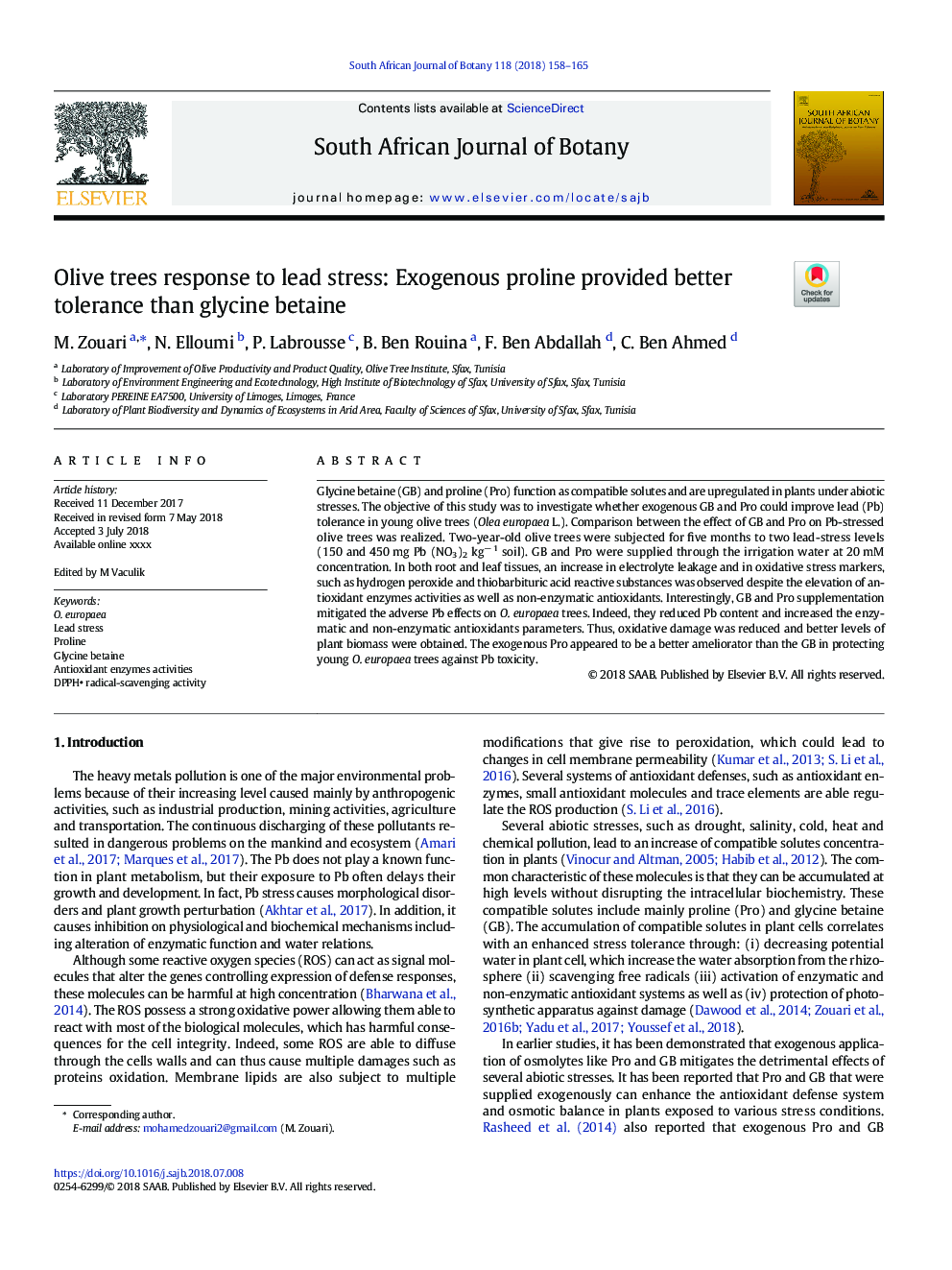| Article ID | Journal | Published Year | Pages | File Type |
|---|---|---|---|---|
| 8882221 | South African Journal of Botany | 2018 | 8 Pages |
Abstract
Glycine betaine (GB) and proline (Pro) function as compatible solutes and are upregulated in plants under abiotic stresses. The objective of this study was to investigate whether exogenous GB and Pro could improve lead (Pb) tolerance in young olive trees (Olea europaea L.). Comparison between the effect of GB and Pro on Pb-stressed olive trees was realized. Two-year-old olive trees were subjected for five months to two lead-stress levels (150 and 450â¯mg Pb (NO3)2 kgâ 1 soil). GB and Pro were supplied through the irrigation water at 20â¯mM concentration. In both root and leaf tissues, an increase in electrolyte leakage and in oxidative stress markers, such as hydrogen peroxide and thiobarbituric acid reactive substances was observed despite the elevation of antioxidant enzymes activities as well as non-enzymatic antioxidants. Interestingly, GB and Pro supplementation mitigated the adverse Pb effects on O. europaea trees. Indeed, they reduced Pb content and increased the enzymatic and non-enzymatic antioxidants parameters. Thus, oxidative damage was reduced and better levels of plant biomass were obtained. The exogenous Pro appeared to be a better ameliorator than the GB in protecting young O. europaea trees against Pb toxicity.
Keywords
Related Topics
Life Sciences
Agricultural and Biological Sciences
Agronomy and Crop Science
Authors
M. Zouari, N. Elloumi, P. Labrousse, B. Ben Rouina, F. Ben Abdallah, C. Ben Ahmed,
